Key takeaways
- Values guide political choices but can be complex; understanding what drives a candidate’s decisions is crucial.
- Identifying core beliefs involves confronting personal values, which shapes how one evaluates candidates and their policies.
- Researching candidates effectively requires looking beyond their campaigns to voting records and fact-checking their claims.
- No candidate is perfect; understanding where to compromise based on personal values is key to informed voting.
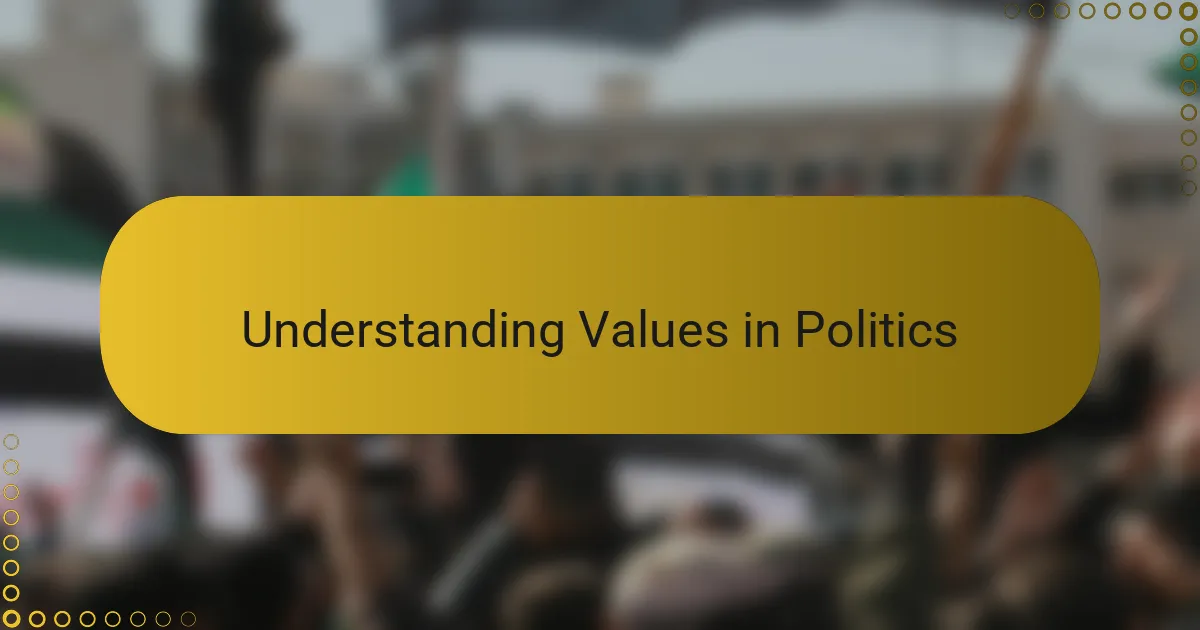
Understanding Values in Politics
Values are the compass that guide our political choices, yet understanding them can be surprisingly complex. I’ve often asked myself, what truly matters beyond party lines? Recognizing whether a candidate’s values align with my own required me to look past slogans and focus on the principles they consistently uphold.
When I first tried to decode political values, I realized they aren’t just abstract ideas; they’re deeply tied to real-life priorities—like justice, freedom, and community. Have you ever felt conflicted when a candidate supports something you agree with but falls short in another area you care about? That tension highlighted for me how essential it is to understand what drives a politician’s decisions, not just their promises.
Ultimately, values in politics aren’t fixed labels but evolving reflections of what we, as individuals, prioritize in society. I found that embracing this dynamic nature helped me engage more thoughtfully with candidates. It made me ask: which values will I not compromise on, and how do those values shape my vote?
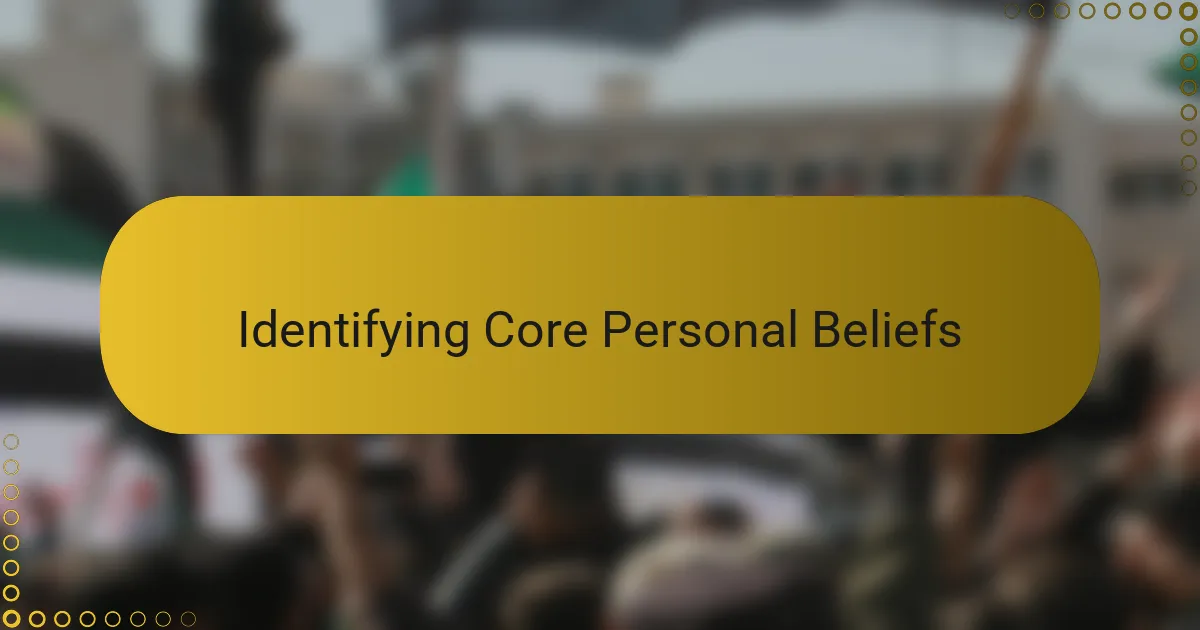
Identifying Core Personal Beliefs
Pinpointing my core personal beliefs wasn’t as simple as listing ideals; it felt more like peeling back layers to reveal what truly moves me. I asked myself tough questions—what do I absolutely stand for when it comes to fairness, equality, or responsibility? That process brought clarity but also emotional surprises, as I confronted values I hadn’t fully acknowledged before.
Sometimes, identifying these beliefs means confronting uncomfortable truths. For example, I realized I valued community support over strict individualism, even if some candidates championed the opposite. It made me reflect on why certain policies resonated with me more deeply and where I might need to rethink my own priorities.
What does core belief really mean in the messy world of politics? To me, it’s about finding those deeply held convictions that guide my reactions, not fleeting opinions. This understanding shapes how I weigh candidates’ stances and helps me stay grounded amidst the noise.

Researching Political Candidates
Diving into researching political candidates felt overwhelming at first—I wasn’t sure where to start or which sources to trust. I quickly learned to look beyond campaign websites and speeches, digging into voting records and past actions instead. Have you noticed how a candidate’s consistency over time often reveals more about their true values than their polished slogans?
I found that interviews and debates offer glimpses into how candidates think under pressure, which was revealing for me. Observing their responses to tough questions helped me sense whether they genuinely understood the issues or were just reciting talking points. Have you ever caught yourself rooting for a candidate who seemed honest even when you didn’t fully agree?
Fact-checking became my trusted tool—I realized promises can be tempting but empty if not backed by evidence. It felt empowering to verify claims and separate real commitment from mere political theater. I started asking myself: am I following someone who walks their talk, or just someone good at sounding convincing?
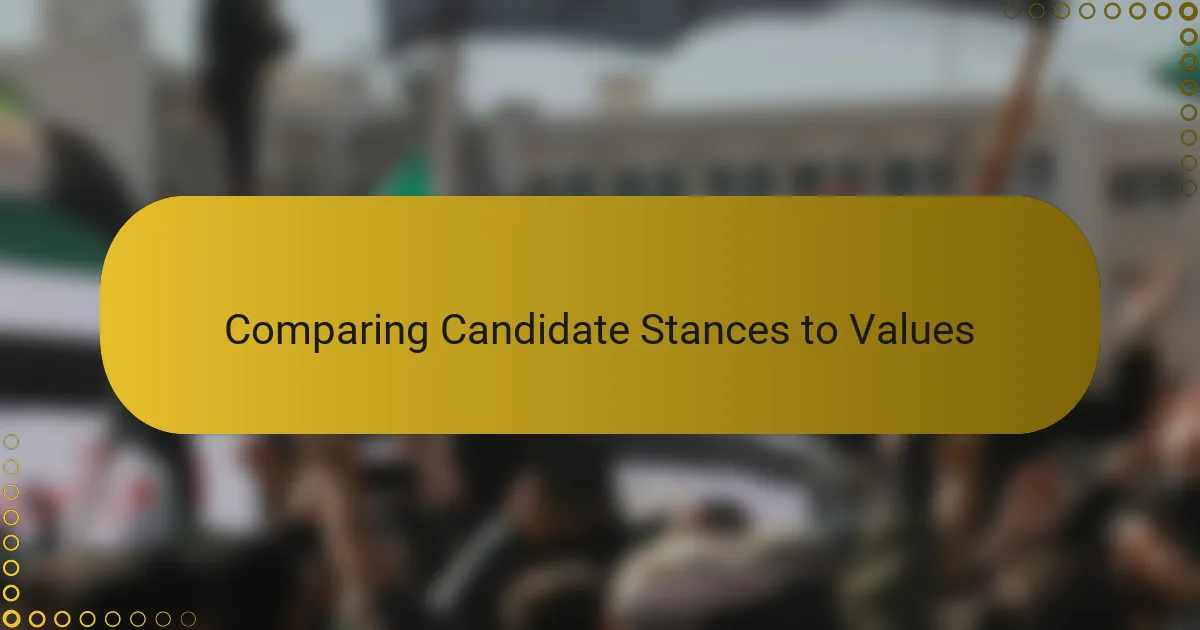
Comparing Candidate Stances to Values
Matching candidates’ stances to my values wasn’t just about ticking boxes; it required digging into the nuances of their positions. I found myself asking, “Does this position truly reflect what I believe, or is it a convenient talking point?” Sometimes, a candidate’s stance aligned perfectly in one area but clashed sharply in another, creating a real internal debate.
I remember a moment when I compared economic policies to my belief in fairness. One candidate championed job growth but seemed to neglect workers’ rights, which didn’t sit right with me. It made me realize that values aren’t always mirrored perfectly in a candidate’s platform, so it’s essential to weigh which principles I’m willing to prioritize.
As I compared stances across issues, I noticed that some candidates embodied my values consistently, while others showed contradictions that challenged my assumptions. That experience taught me to dig deeper—beyond party labels or campaign promises—to find where authentic alignment truly lies. Have you ever discovered a candidate who surprised you by being more—or less—in tune with your values than you expected?
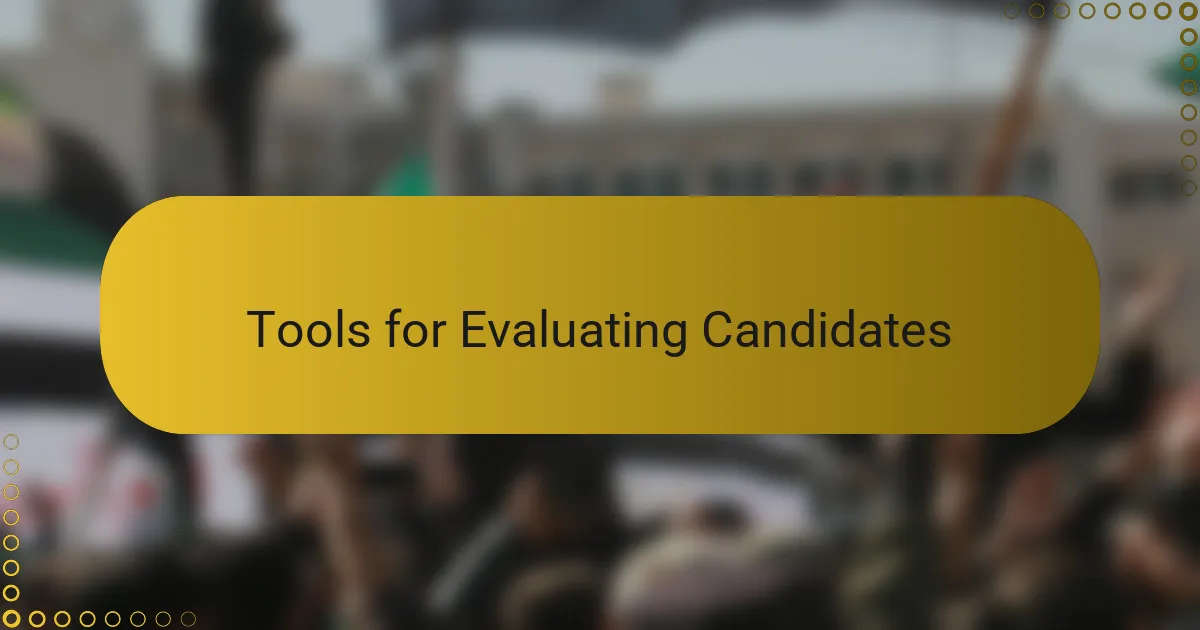
Tools for Evaluating Candidates
When I started looking for tools to evaluate candidates, I quickly realized that relying solely on campaign ads leaves too much to wish for. That’s when I turned to nonpartisan voter guides and scorecards—they helped me see where candidates stand on specific issues without the spin. Have you ever wondered how a simple checklist could clarify what really matters beyond flashy slogans?
Another indispensable tool for me was using voting record databases. Seeing how politicians have voted over time gave me a clearer picture of their true priorities, not just what they promise during campaigns. I remember feeling both surprised and reassured when a candidate’s past actions matched my core values—those tools made my doubts fade.
Of course, no tool is perfect, and sometimes I leaned on candidate comparison websites that break down policy differences side by side. These resources helped me weigh complicated issues and ask: which trade-offs am I willing to accept? Without these practical tools, I might still be lost in the noise of conflicting claims and campaign rhetoric.
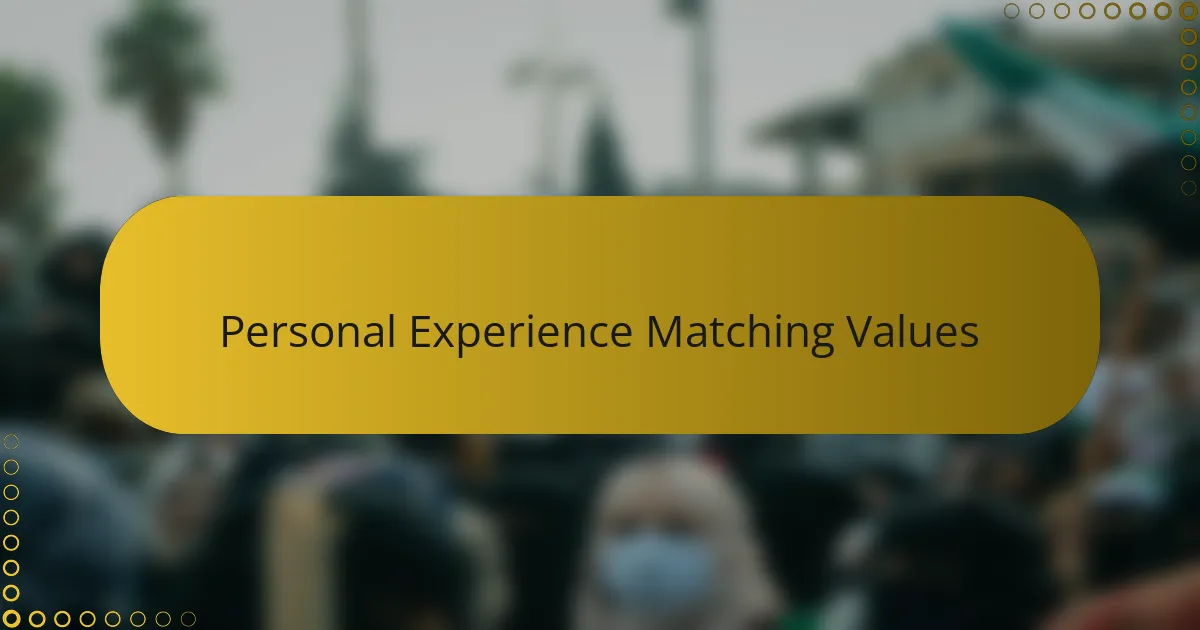
Personal Experience Matching Values
Matching my values with political candidates felt like piecing together a personal puzzle. I recall feeling both hopeful and skeptical as I sifted through their records, wondering: “Does this person really stand for what I believe, or is it all just political theater?” That moment of doubt pushed me to dig deeper beyond surface impressions.
There was a time when a candidate’s stance on education deeply resonated with my commitment to equal opportunity, but their approach to environmental issues left me uneasy. I grappled with this contradiction—how do I reconcile conflicting values in one person? It made me realize that no candidate is perfect, but understanding where I’m willing to compromise matters most.
I often asked myself, “Can I trust this candidate to act according to their stated principles when it counts?” Watching their consistency over time gave me confidence. The relief I felt upon finding someone whose actions aligned with my beliefs was profound—it turned voting from a duty into a meaningful choice.